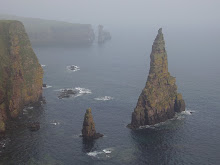
Georgia is one of the most important geo-political countries in the world. Straddling Europe and Asia, it is a land full of impressive mountains, small quirky towns and beautiful sandy beaches along the Black Sea. The former Soviet Satellite has had a difficult recent history - not least because of its most famous son Stalin. It is a key link in the vital BTC (Baku-Tbilisi-Ceyhan) pipeline that supplies Europe with gas from the Caspian Sea. The pipeline subverts Russia - a canny move that has taken away some Moscow’s cards in the game for control of natural resources in the Caucasus.
Georgia hit the headlines in 2008 with its conflict with Russia, an inevitable clash. After Georgia gained its independence in 1991 tensions in South Ossetia and Abkhazia came to the fore. Territorial disputes have been a legacy of the Soviet Union’s collapse, but few have been more pronounced than those of Georgia’s. Located on the northern border with Russia, both areas are effectively self-governed with little power exerted over them by the capital Tbilisi. The regions are also notorious for organised crime and in the early 1990s, many Georgians were forced to leave Abkhazia during fighting with separatists and have never returned. South Ossetia and Abkhazia wish to be recognised in their own right, but neither Georgia nor the international community are willing to do so. As well as containing oil and gas pipelines, they also have busy ports and tourist resorts. It remains a point of contention with Russia, and is unlikely to be resolved anytime soon.
In 2007 I spent a few weeks in Georgia, prior to the eruption of violence. I arrived in the capital in time for the Independence Day parade through Rustaveli Street. The shimmering spectacle of tanks, helicopters, jets and troops was a clear sign from president Sakashvilli that any blows delivered by Putin’s Russia would not be taken lying down. Crowds lined the streets to watch and cheer with pride.

I watched the display whilst munching my favourite Georgian dish, katchapuri. This is the mother of all pasties and sold from street stalls. Georgian food is very heavy, but delicious. One glance at it is enough to make the arteries scream for mercy. After a day’s walking around the steep cobbled streets, it is the perfect way to relax, along with a glass of the famous local wine.
I took the bus along the beautiful road to Vani in in the west of Georgia. Here legend has it that Jason and Argonauts came to steal the golden fleece. Locals used to use sheepskins to trap gold particles coming down rivers from the Caucasus mountains. The fleeces would then be dried and the captured gold shaken out. All that remains from that time are chunks of the city wall, most of which nature has reclaimed, and a small museum dedicated to the Argonaut tale.
I continued onto Kutaisi, Georgia’s second city and a popular holiday destination during Soviet times. Now all but abandone
 d in favour of foreign parts, the town still retained a certain charm. A grand old dame who has lost her beauty and elegance but clings onto it. The town is overlooked by a lovely 1000 year old Orthodox cathedral, which is a world UNESCO site. Only one of the stunning wrought iron gates remain, the other having been looted during one of the city’s numerous sackings over the centuries.
d in favour of foreign parts, the town still retained a certain charm. A grand old dame who has lost her beauty and elegance but clings onto it. The town is overlooked by a lovely 1000 year old Orthodox cathedral, which is a world UNESCO site. Only one of the stunning wrought iron gates remain, the other having been looted during one of the city’s numerous sackings over the centuries. My final stop before leaving Georgia was the delightful Batumi, another Soviet resort that lounges by the Black Sea. A perfect place to view sunsets, sample more of the local wine and an ice-cream or two, you can understand why Vladimir Putin takes his holidays along this coast. Batumi is also of note for an almost intact Roman fort where St Matthew is reputed to be buried. The fort was one of the most northerly outposts of the Roman empire and still holds a certain imposing majesty. The huge thick walls are now home to a beautiful garden full of roses, trees and songbirds. Tranquillity has at least reached one part of Georgia.

No comments:
Post a Comment